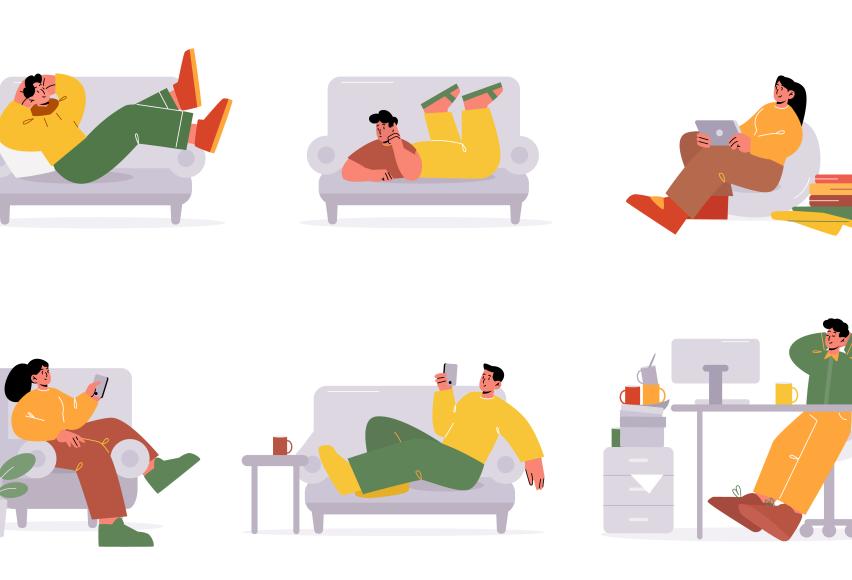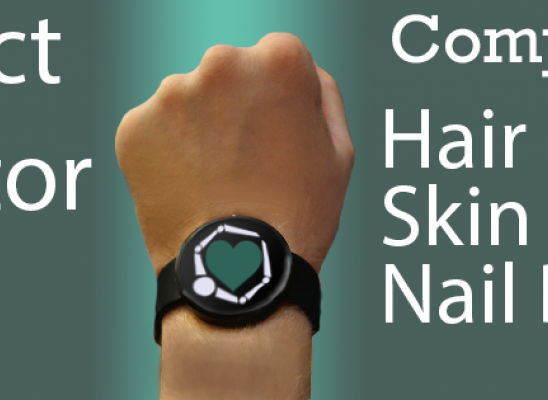
Online test
Find out the severity of your symptoms with this free online test
Ask someone why they pick their skin, and you’ll sometimes hear, “I’m bored.” Boredom isn’t thought to be the cause of skin picking, but it has been linked to compulsive skin picking and is a commonly identified reason for picking. But what exactly is boredom and what can you do about it? In a recent Skinpick.com webinar, Dr. Vladmir Miletic takes a closer look at boredom and offers some useful tips for dealing with it.
What Is Boredom?
It might surprise you to know that there is no universal definition of boredom. It’s often described as the experience of wanting to engage in some stimulating or engaging activity and being unable to. Modern psychology considers boredom to generally be a fleeting and relatively inconsequential state that results from monotonous and unstimulating tasks. It is not considered a mental health issue.
Boredom tends to arise when an activity is or becomes emotionally tedious or unstimulating. The emotional response is to find alternative experiences. Sometimes those alternatives can have negative results such as when skin picking is triggered by boredom. Boredom is an emotional signal to pursue another goal.
In a broader sense, boredom is a product of our experience of time and meaninglessness. How is that time filled and what meaning do those activities have?
Boredom is something that we experience when we have nothing to do so it tends to happen in our leisure time. Boredom seems to be more about how you structure your day. As Dr. Miletic puts it, boredom is not your enemy. It’s actually a kind of well-meaning invitation to please do something else.
All boredom isn’t the same. There are two main types of boredom:
- Boredom as a tendency or trait – some people are prone to being bored
- The state of being bored – when you find yourself in a situation that bores you
Both types of boredom can act as triggers to skin picking.
When faced with something unwanted or unpleasant (like being bored), we tend to avoid it. And, as Dr. Miletic notes, “where there's avoidance as you well know there's also picking”.
When we get bored, two processes occur:
- A physiological response of autonomic arousal to seek novel stimuli (your brain
- A psychological response when the mind wanders
As your mind wanders, you start thinking about all kinds of things, some of which can lead to some intense and often negative emotions. You don’t want to feel that way. So, you’re sitting there bored with nothing to do and with all these feelings. To avoid or alleviate that discomfort, your brain goes looking for something else to do. In this case, picking at your skin. In the webinar, Dr. Miletic offers some great examples of how the process might unfold.
So why skin picking? What’s the possible “benefit” to picking to alleviate boredom? As he often does, Dr. Miletic turns to constructivist theory to look at picking behavior. What is the function of the behavior? The picking allows you to maintain the status quo. When you pick to avoid the physical and emotional turmoil, you’re choosing to avoid your own psyche in favor of maintaining the structure of your day. The status quo is safe and predictable. In some ways, skin picking can become part of the routine. After a stressful day, there is something that will reduce the distress that is safe and predictable.
Dealing with Boredom
Dr. Miletic describes the experience of boredom as lacking something but not really knowing what that is. Alleviating boredom means finding elements or actions that create interest. He offers several strategies to help deal with the experience of boredom without skin picking:
- First, STOP whatever it is that you’re doing. He says that this is the most important thing to remember. Just stop.
- Next, breathe. He recommends doing a deep breathing exercise and then looking around. Notice what catches your attention. It might be a good source of stimulation.
- Sit through the boredom. Turn off the TV or stop what you’re doing. Sit on your hands or even wear gloves if you need to and then, be still. Remember that whatever arises will pass.
- What do you need at that moment? Identify what your need is and engage with it. Remember, boredom is an indicator that whatever you’re doing isn’t what you need.
- Compromise with yourself. Sometimes your body needs movement while your mind needs to rest. What could you do to satisfy both? Look for something that lets you move but doesn't require a lot of mental energy.
- Meditate. Meditation lets you tune into what’s happening inside. Boredom feels like nothing is happening.
- Journal. A journal lets you acknowledge and release emotions as you write. Let yourself become aware of your thoughts and feelings and explore them in your journal.
- Look for positive ways to stimulate your senses. Which one of your senses needs stimulation the most? Change rooms. Move to a different seat. Get some water. Use aromatherapy.
Everyone is different so not every strategy will work for every person. Try out a few and see which ones appeal to you and seem to help the most. The first time will be hard. The second and third might be too. When you find what fits you best, keep trying. It takes time to create new responses. Each time you are able to alleviate your boredom without resorting to picking your skin helps to strengthen the use of a positive alternative.
To see the entire webinar, visit the Skinpick.com YouTube channel at https://youtu.be/SFA_i01tW6E.
Want to know more? Visit Skinpick.com to learn more about skin picking, treatment, and other resources. You can also subscribe to the Skinpick.com newsletter and subscribe to the YouTube channel to receive notifications about upcoming webinars.
Online test
Find out the severity of your symptoms with this free online test
Start your journey with SkinPick
Take control of your life and find freedom from skin picking through professional therapy and evidence-based behavioral techniques.
Start Now



